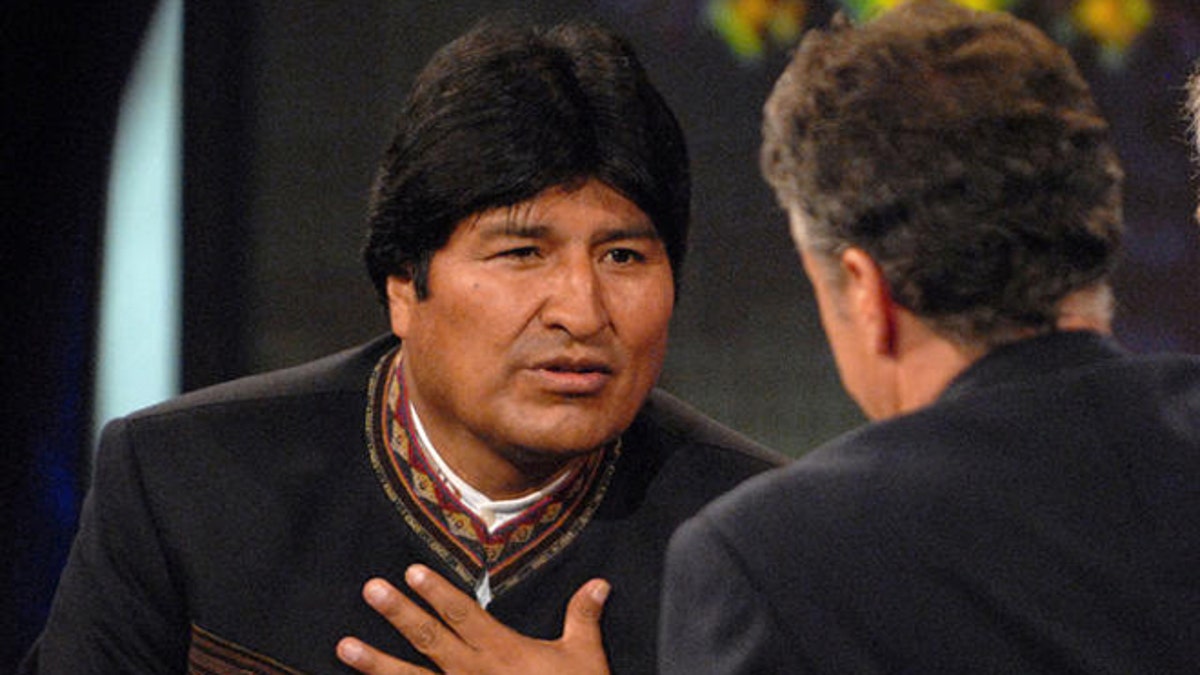
Bolivian President Evo Morales, left, speaks with Daily Show host Jon Stewart, center, on Comedy Central's "The Daily Show with Jon Stewart" in New York, Tuesday Sept. 25, 2007. Morales's translator is seen at right. (AP Photo/Peter Kramer) ((AP Photo/Peter Kramer))
Bolivia’s long-awaited first foray into space will soon take place and government officials plan to be on hand in China when the Asian superpower launches the Andean nation’s "Tupac Katari" telecommunications satellite.
A delegation from La Paz will travel to China in December to witness the satellite’s launch, but it is unclear yet if President Evo Morales will make the trip.
"The ministers have asked me to head the delegation to China, but it's not definitive yet," Morales said, according to China’s state-run Xinhua news agency. "The launch date can vary by two or three days, depending on the weather in that country, so we are still consulting."
The satellite is Bolivia’s first and signals growing ties between the country and China. The director of the Bolivian Space Agency (BSA) said the satellite is 90 percent complete and the government has installed 1,000 transmission centers in the country's most remote communities to bring Internet access to residents there.
Morales added that he hopes to use the satellites capabilities to bolster its communication with South American neighbors.
"We hope the experts will continue to provide us with guidance, so this satellite can serve to integrate all of South America," he said.
China has recently made inroads into Bolivia in terms of major construction projects.
Last month, Bolivia announced that a Spanish company and two Chinese firms will build a 148-kilometer (92-mile) railway in central Bolivia, a $250 million project financed by La Paz.
The construction of the railway was divided into three sections, which were awarded to China's CAMC and China Railway and to Yapilo, which is responsible for the bridges.
The first and second sections will cost $104 million and $83 million, respectively, while the bridges will have a $47 million price tag, Morales said.
The remaining funds will cover the cost of supervising and inspecting the project, which is to be completed in two years.
The railway will link up with another line in Santa Cruz, facilitating shipments of urea and ammonia from a petrochemical plant in Bulo Bulo to Brazil and Argentina.
Efe contributed to this report.
Follow us on twitter.com/foxnewslatino
Like us at facebook.com/foxnewslatino
